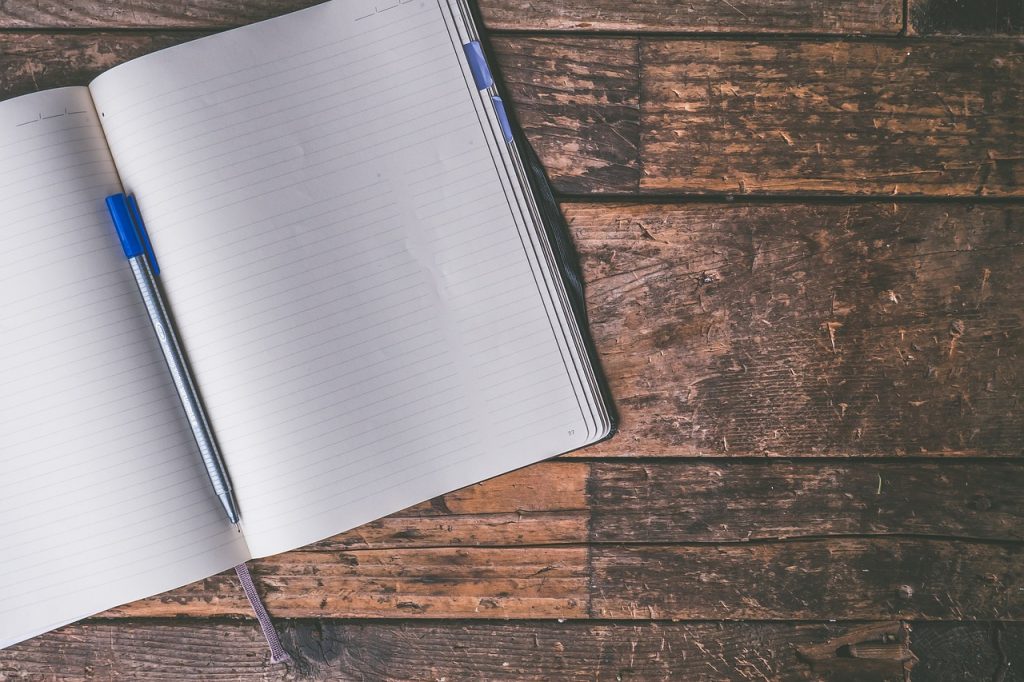How to Maintain Mental Health in a Pandemic

2020 has been a trying year for mental health. There’s a raging global pandemic that doesn’t appear to be slowing down any time soon. Heightened divisiveness between political parties. An increase in wildfires, particularly on the west coast. Murder hornets! And, to top it all off, folks are still arrogant pricks on the internet. We’ve spent nine months out of this year indoors, wholly extricated from one another. Our collective mental health has taken a hit. “Social distancing” has become commonplace. So, how does one cope with isolation?
As humans, we crave contact. We desperately need it. But nowadays, contact is limited to six feet apart when in public. We’re told to stay inside and stay away from people for the betterment of society. The virus still exists, and this may be our new normal for a long while. If you struggle with depression and anxiety, the urge to slip into old habits may be overwhelming. For me, I tend to find even menial tasks like brushing my teeth to be monumental chores. That’s usually a red flag that my mental health is in a slump.
The key is to recognize you’re in a pit. Then, do everything you can to claw your way out of it. Thankfully, I’ve got a list of methods that’ll help you maintain peak mental health while stuck in isolation. Quarantine/lockdown can truly feel like a prison, but you can still have a free, peaceful mind.
RELATED: Want a list of 31 simple things you can do to be happy? Click here to read more!
Filter social media usage
Everyone who’s watched The Social Dilemma will tell you that social media can be a cesspool of toxicity. It’s not kosher for your mental health. There are political parties slinging mud across the aisle, trolls getting their jollies off on hurling unnecessary insults, and folks getting “canceled” over trivial things. Wading through the murky waters of Twitter can feel like walking on eggshells. But you can still find joy in social media too, without all the excess negativity. “Trim the fat,” as it’s said.
Let’s use Twitter as an example. You can “mute” words and block topics that you don’t want to see on your feed. I did it recently, and it’s made my social media experience more enjoyable. I like to look at the funny stuff, so sue me. Give your mental health a much-needed boost by clearing out the toxic junk that only serves to bring you down. Filter your own feed so that it’s tailored to what you want to see.
Additionally, you should limit your time on social media if possible. Too much of a “good thing” can wind up being a bad thing. I know the urge to connect is strong, but why subject yourself to meaningless, hollow stranger interactions? You can start out with small steps, such as cutting your time on social media to only when you take breaks while working from home. Just be sure to close Twitter at least a few hours before bedtime so you can have optimal sleep.
Video call your family and friends
Look at some friendly faces! Instead of shooting some texts, why not set up regular Zoom calls with your parents? Your grandparents? Perhaps you can partake in weekly family movie nights via video call. It may feel impersonal, but it’s less impersonal than a text. It’s vital to get that face-to-face connection, although it’s only virtual. I guess it’s like simulating physical contact. You can see another person on the other side as opposed to reading messages. You can detect inflections in voices and see facial expressions.
This is an unprecedented time. We’ve never experienced anything like this year before. So, we have to make do with what we have. The next best thing. Use video call whenever you can in this instance, because even virtual contact is better for your mental health than no contact. Reach out to your family and friends to maintain some semblance of normalcy amid this abnormal year.

Maintain your normal, non-pandemic routine
I’m sure you’ve heard about how establishing a routine is beneficial for those who are recovering from addictions. Routines are also helpful for your mental health, especially when a global pandemic takes an ax to our daily lives. Even if you’re now working from home, you should still try to keep your pre-pandemic routine in motion. Get dressed. Do your hair, if that’s your thing. Put on makeup if that’s your jam. Schedule time in your day to exercise, read, and write. Make sure to indulge in your hobbies as you did before COVID. Wake up at the same time every day, and keep a rigid sleep schedule. Don’t let your eating habits fall by the wayside.
As it says in this article at recovery.org, “Our bodies are ‘set’ to work better when our sleeping, eating, and exercise patterns take place on a fairly consistent schedule. Reinforcing this body process is the fact that our minds, too, strongly depend on systems of pattern and habit.”
See? Maintaining your normal routine amid COVID-19 is a surefire way of keeping your mental health in tip-top shape.
Talk to a therapist
You’ve probably heard this a million times, but asking for help is never a sign of weakness. In fact, admitting you need help and showing vulnerability is a sign of strength. It takes courage. While we can’t do that much together in person these days, vital resources like therapy aren’t completely off the table. They’ve just shifted to a new medium — virtual. I myself have virtual sessions with my therapist once a week, and I’ve been doing this since quarantine started.
Now, I’ve also been seeing said therapist for years prior to the pandemic. You can still find valuable virtual resources even if you didn’t have a therapist before this year. If you click here, verywellmind.com will give you the lowdown regarding the best online therapy programs of 2020. There’s nothing shameful in talking things out. Having an objective, empathetic third party help you suss out past and present trauma can only aid in your growth as a person. Plus, you won’t be suppressing harmful emotions without a feasible outlet to release them.

Write in a journal
Sometimes you gotta write it out (Get it?). And the best way to ride it out (the pandemic) is to get your feelings on paper. This technique may not work for everyone, but for creative folks like me, I find that being vulnerable on the page is a cathartic tool. Journaling was something my therapist suggested to me. Now, your writing doesn’t have to be flawless and error-free. It doesn’t even have to make sense. Who needs proper sentence structure? Not you!
The crucial part is to unleash negative, poisonous thoughts/feelings that are trapped within. Whether that takes the form of free-flowing ramblings or poetry or song, as long as you feel better, that’s all that matters. Find what works best for you and capitalize on that. Anything for the betterment of your mental health.
Exercise
Release the endorphins! It’s not unknown that exercise can positively impact your mental health. According to HelpGuide.org, exercise “can treat mild to moderate depression as effectively as antidepressant medication — but without the side effects.” However, that’s not to say you can’t use antidepressants if you need them. By all means! There’s nothing wrong with taking medication, but exercise may help alleviate your symptoms depending on severity.
Anyway, the aforementioned article reveals a study regarding exercise and major depression: “a recent study done by the Harvard T.H. Chan School of Public Health found that running for 15 minutes a day or walking for an hour reduces the risk of major depression by 26 percent.”
I’m not saying you need to hire a trainer and rigorously exercise like you’re about to play a Marvel superhero, but even going out for a walk is beneficial for your mental health. Which leads me to my next point …

Try to get outside if you can – but don’t forget your mask
Obviously, if you live in a metropolitan area or in town, you don’t want to leave home without your mask. But getting outside will boost your mental health. Of course, the weather outside is getting frightful, so layers are your friend. If you live in the countryside, take a stroll down the lane. If you live in the city, walk around the block. Vitamin D deficiency can contribute to depression.
In this 2013 study, researchers conducted a study at Cambridge that delved into this very topic. Their conclusion? “Our analyses are consistent with the hypothesis that low vitamin D concentration is associated with depression, and highlight the need for randomised controlled trials of vitamin D for the prevention and treatment of depression to determine whether this association is causal.”
So, in short: get outside when you can. Get some fresh air. A much-needed Vitamin D boost. It may not be a cure all, but it’ll help. Just don’t forget your mask.
Eat healthy foods and regulate your sleep
“An apple a day keeps the doctor away” is more than just a phrase your grandparents repeatedly told you as a kid. Healthy eating and sleeping affects more than your body — it affects your mental health. So, give that bad boy the jumpstart it needs with some fruit and veggies and eight hours of sleep a night.
A study on the Harvard Health Blog revealed that a healthy diet is “associated with a significantly lower risk of developing depressive symptoms.” That’s not to say healthy eaters can’t be depressed, but every little bit helps, right?
As for maintaining a sleep schedule, the Sleep Foundation dove into this very topic and its link to depression. “Sleep problems increase the risk of initially developing depression, and persistent sleep issues can increase the risk of relapse in people who have successfully been treated for depression. As a result, taking steps to sleep better can have a beneficial effect on mood.”
Eat healthily! Get enough sleep! Enact a rigid sleep schedule! All of the above play a vital role in keeping your mental health in peak form.

Well, there you have it! The secret ingredients to nurturing your mental health while in isolation! Put all of these methods into practice, and you may notice a difference in your mood. A peaceful mind is yours for the taking, even in the midst of an ensuing global pandemic. What are some of the methods you use to maintain your mental health during quarantine?
